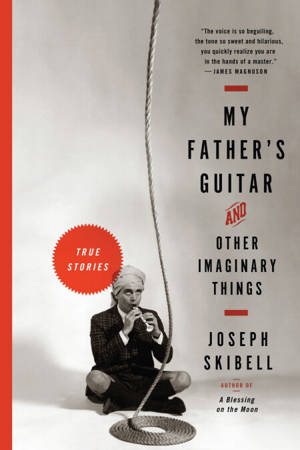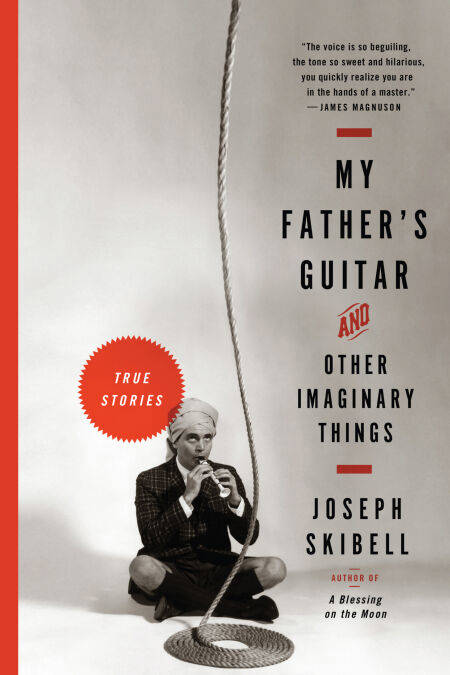
- Afhalen na 1 uur in een winkel met voorraad
- Gratis thuislevering in België vanaf € 30
- Ruim aanbod met 7 miljoen producten
- Afhalen na 1 uur in een winkel met voorraad
- Gratis thuislevering in België vanaf € 30
- Ruim aanbod met 7 miljoen producten
Zoeken
€ 4,49
+ 4 punten
Uitvoering
Omschrijving
Often comic, sometimes tender, profoundly truthful, the pleasure in these nonfiction pieces by award-winning novelist Joseph Skibell is discovering along with the author that catastrophes, fantasies, and delusions are what give sweetness and shape to our lives.
“As a writer,” Skibell has said, “I feel about life the way the people of the Plains felt about the buffalo: I want to use every part of it.” In My Father’s Guitar and Other Imaginary Things, his first nonfiction work, he mines the events of his own life to create a captivating collection of personal essays, a suite of intimate stories that blurs the line between funny and poignant, and between the imaginary and the real.
Often improbable, these stories are 100 percent true. Skibell misremembers the guitar his father promised him; together, he and a telemarketer dream of a better world; a major work of Holocaust art turns out to have been painted by his cousin. Woven together, the stories paint a complex portrait of a man and his family: a businessman father and an artistic son and the difficult love between them; complicated uncles, cousins, and sisters; a haunted house; and—of course—an imaginary guitar.
Skibell’s novels have been praised as “startlingly original” (the Washington Post), “magical” (the New Yorker), and the work of “a gifted, committed imagination” (the New York Times). With his distinctive style, he has been referred to as “the bastard love child of Mark Twain, I. B. Singer, and Wes Anderson, left on a doorstep in Lubbock, Texas.”
“As a writer,” Skibell has said, “I feel about life the way the people of the Plains felt about the buffalo: I want to use every part of it.” In My Father’s Guitar and Other Imaginary Things, his first nonfiction work, he mines the events of his own life to create a captivating collection of personal essays, a suite of intimate stories that blurs the line between funny and poignant, and between the imaginary and the real.
Often improbable, these stories are 100 percent true. Skibell misremembers the guitar his father promised him; together, he and a telemarketer dream of a better world; a major work of Holocaust art turns out to have been painted by his cousin. Woven together, the stories paint a complex portrait of a man and his family: a businessman father and an artistic son and the difficult love between them; complicated uncles, cousins, and sisters; a haunted house; and—of course—an imaginary guitar.
Skibell’s novels have been praised as “startlingly original” (the Washington Post), “magical” (the New Yorker), and the work of “a gifted, committed imagination” (the New York Times). With his distinctive style, he has been referred to as “the bastard love child of Mark Twain, I. B. Singer, and Wes Anderson, left on a doorstep in Lubbock, Texas.”
Specificaties
Betrokkenen
- Auteur(s):
- Uitgeverij:
Inhoud
- Aantal bladzijden:
- 224
- Taal:
- Engels
Eigenschappen
- Productcode (EAN):
- 9781616205454
- Verschijningsdatum:
- 26/10/2015
- Uitvoering:
- E-book
- Beveiligd met:
- Adobe DRM
- Formaat:
- ePub

Alleen bij Standaard Boekhandel
+ 4 punten op je klantenkaart van Standaard Boekhandel
Beoordelingen
We publiceren alleen reviews die voldoen aan de voorwaarden voor reviews. Bekijk onze voorwaarden voor reviews.











